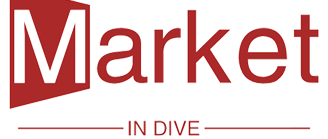IPOs vs. SPACs: Who will win in 2021?
2020 was a surprisingly great year for IPOs, but it was an even much better year for Special Purpose Acquisition Companies (SPACs).
There were 194 conventional IPO offers that raised $67 billion, the finest year since 2014, according to Renaissance Capital. However, it was an even much better year for SPACs, which raised simply about the same quantity: 200 SPACs raised about $64 billion.
SPACs are companies without any business operations that are established solely to raise capital from financiers for the purpose of obtaining one or more operating services. They were a little part of the investing landscape until a couple of years ago, but their popularity has taken off in the last couple of years.
Who’s going to win in 2021? Market individuals say there is space for both.
“If you combine IPO and SPAC volume of $130 billion, these numbers exceed anything we have seen since the internet bubble,” Kathleen Smith from Renaissance Capital, which supplies IPO research to financiers, informed me.
Smith’s ETF, the Renaissance Capital IPO ETF (IPO), a basket of 50 of the largest companies that have gone public over the last numerous years, has been a huge recipient of the interest in IPOs this year. After years of relative underperformance, the IPO ETF is up 100% this year and recently struck historic highs. Assets under management now go beyond $500 million. Returns have been improved by pandemic-driven demand for the digital economy (e.g. Zoom, Pinterest) and biotech (e.g. Moderna) stocks that are normal constituents of the IPO market.
SPACS on a roll
However, SPAC is on a roll too and undeterred by prior criticisms about SPACs in general.
“SPACs bring lots of advantages to the capital raising procedure,” Gil Ottensoser, head of SPAC Banking and Capital Markets at BTIG, told me, consisting of:
Complete transparency.SPACs should submit an S-4 when announcing a business they are seeking to buy that includes much of the exact same disclosure and risk outlines that remain in the S-1 that an IPO must submit.
Sponsors with know-how. Expense Ackman, Michael Klein, Chamath Palihapitiya, and private equity firms like Apollo Global, Solamere Capital, TPG Capital have all entered the space just recently, providing trustworthiness to the SPAC business.
Capability to utilize forward-looking assistance. Due To The Fact That The SPAC is a public company when it reveals the business it is purchasing, the SPAC is able to offer forward-looking assistance on the company. “Investors get to see even more info about the target business than they would in an IPO,” Ottensoser informed me.
An easy exit. Financiers dissatisfied with the target acquisition can get out by offering their shares before the acquisition is completed.

2021 playbook: more of the same
Who will win in 2021? IPOs and SPACs are both subject to the very same guidelines of the video game when going public: much of it depends upon market conditions. An upmarket, and an enhancing economy, will be valuable to both camps.
Smith states there will be lots of prominent unicorns that will likely utilize the IPO route to go public in 2021, consisting of SpaceX (Area cars), Stripe (mobile payments), Waymo (Alphabet’s autonomous car), and Instacart (grocery shipment).
Her IPO ETF will be among the very first ETFs to consist of Airbnb and DoorDash when they go public today.
Paul Dellaquila, who runs the Defiance Next Gen SPAC ETF (SPAK), a basket of recent SPAC offerings, expects the profile of SPACs to only boost in 2021, now that it has numerous huge names behind it.
“Nothing succeeds like success,” Dellaquila informed me. “Up till a couple of years back, many SPACs were small-cap affairs with low profiles. Then companies like Virgin Galactic and DraftKings went public via SPACs, which greatly raised the profile.” Both are among SPAK’s most significant holdings.
Next up, states Dellaquila: sports teams. He states RedBird Capital (Billy Beane of “Moneyball” is a financier) is seeking to take a sports team public, maybe Fenway Sports Group.
Even staunch IPO supporters like Kathleen Smith says there is space for both IPOs and SPACs. She keeps in mind the SPAC offerings keep numerous money-losing stocks out of the routine IPO market, making it a much better quality structure.
Assuming the markets hold up and the economy enhances, the sheer number of SPACs currently seeking acquisitions (210, according to BTIG, all with time limits of 18 to 24 months maximum) suggests that 2021 will be at least as strong as 2020.

